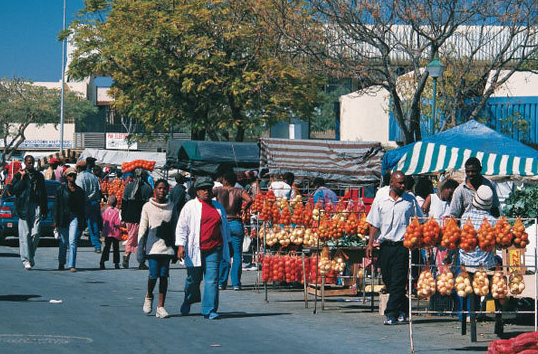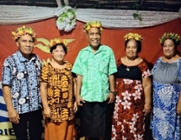LAs use LED to deliver development in Southern Africa

27 June 2016
Local economic development (LED) is a key mechanism for local government to help achieve the SDGs such as tackling poverty, inequality, and climate change, says the Commonwealth Local Government Forum, as a result of projects it has been piloting in Southern Africa.
From 28-29 June, CLGF is holding a regional conference in Johannesburg, South Africa, to disseminate the outcomes of its regional programme on Supporting local governance and local economic development in Southern Africa and explore further the role of local government in delivering the SDGs. The programme was funded by the UK Department of International Development and has also received support from the European Union.
The conference will look at the practical ways in which local government has demonstrated that it can be more developmental, particularly using LED as a way of increasing prosperity. The results of CLGF’s work with governments and local authorities in Southern Africa have shown that LED is increasingly a strategic enabler for national economic and development objectives, including meeting the new sustainable development goals (SDGs) adopted by the UN in 2015.
CLGF has been helping governments and local authorities in the region to conduct local economic assessments and develop LED strategies, bringing together all local stakeholders to ensure political and local buy-in. The pilot projects, in Botswana, South Africa, Swaziland and Zambia, have shown how developing and implementing LED strategies can made a difference:
• Chipata Municipality, Zambia focused on promoting local investment through its LED pilot project; investments have increased from some 130 companies in 2014 to more than 1700 by May 2016; council revenues, including business fees have more than doubled and some 1000 local small traders have benefited to set up permanent shops.
• In Mbabane, Swaziland, more than 1000 people from low income communities or informal settlements have been trained in sustainable environment management and income generation, and 500 climate smart gardens have been established; reusing waste materials has led to the production of compost for the gardens and for sale, and other commercial products using reusable waste materials. The project has brought food security, improved socio-economic status and better environmental management for low income communities.
However, there are challenges for local governments in being able to deliver LED locally including their human and institutional capacity, lack of local data, limited access to financing, unfunded mandates, and the impact of global trends.
“Poverty, underdevelopment and inequality remain the biggest challenges for the African continent,” said CLGF Secretary-General Carl Wright.
“LED is an important mechanism for local government to contribute directly towards achieving the SDGs and local governments are increasingly building an economic development component into their local strategic planning. Our programme in Southern Africa has shown the benefits of the LED approach, and at the same time helped to shape good practice for others from the lessons learned.”
Speaking at the opening of the event, CLGF incoming chairperson Rev Mpho Moruakgomo stressed the key role that local government has in delivering the SDGs and requires good links and cooperation between all spheres of government.
Back to News





